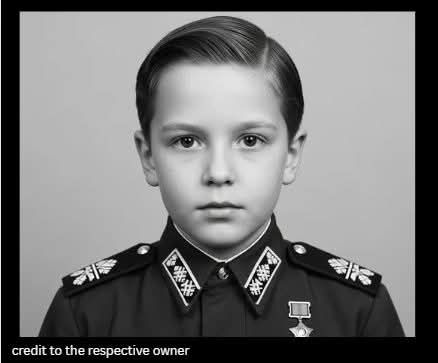In the warm glow of Szeged, Hungary, on a crisp autumn day—October 25, 1933—a boy named Miklós Halász came into the world. Born to a humble Jewish family whose lives were woven deeply into the fabric of their town, Miklós, or Miki as his family called him, grew up surrounded by the gentle rhythm of everyday life. Their modest apartment, nestled just above a tailor’s shop, was filled with the comforting aroma of onion stew simmering on the stove and the soft flutter of lace curtains dancing in the breeze. From the very start, Miki was a child of quiet wonder, captivated by the smallest things: the way sunlight caught dust motes in the air, the worn edges of a windowpane, and the careful stacking of sugar cubes on the kitchen table. To his mother, watching him build those delicate towers was like witnessing the first bricks of a dream taking shape.
But as the years passed, the world around Miki darkened. By 1938, the creeping shadow of hateful laws began to strip away the innocence of his childhood. Neighbors disappeared, freedoms vanished, and the carefree laughter of play was replaced by a heavy silence of fear. Yet even in those bleak times, Miki found small pockets of joy—a precious box of sugar cubes given on his ninth birthday became a treasure. He would build his little castles with painstaking care, each cube a quiet act of hope. His family wrapped him in love, trying to shield him from the storm, but history’s cruel tide was relentless.
In 1944, the Halász family was forced into a cramped ghetto, their lives uprooted and confined. From there, they were torn from their home and loaded onto a train bound for Auschwitz. Throughout that terrifying journey, Miki held tightly to his sister’s hand, whispering stories of ants marching, hidden treasures, and sugar cube castles that reached all the way to the stars—tales that became fragile shields against the darkness closing in.
Miklós’s life was heartbreakingly brief, extinguished in the horrors of Auschwitz when he was just ten years old. Though we may never know the exact moment he was taken, the brutal truth remains: a bright, gentle boy with a heart full of dreams was lost simply because of who he was. Yet, Miklós’s story is not one of despair alone. It is a testament to the light he carried—the curiosity, the kindness, and the hope that even in the darkest times, small acts of wonder can endure. His memory invites us to remember not just the tragedy, but the beautiful spirit that lived within him.
